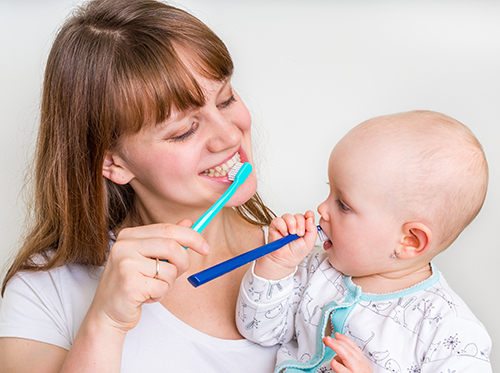Oral Health Concerns Specific to Pregnant Women
July 4th, 2018

A lot of changes occur in a woman's body during pregnancy. Hormone fluctuations are responsible for many of those changes, including the need for additional attention to the teeth and gums. Women who are expecting are at an increased risk for oral health complications, including gingivitis and tooth decay, which can lead to irreversible damage. Fortunately, there are steps pregnant women can take to keep their teeth and gums in optimal health from the first trimester to delivery day. Today, Dr. Michelle Slezewski and Dr. Paul Engibous and our team at Pediatric Dental Associates thought we would share them.
At-home dental care
At-home dental care should not vary much from what you did prior to pregnancy. The American Dental Association recommends brushing at a minimum of twice per day using fluoridated toothpaste. Follow up with floss to keep bacteria from accumulating in hard-to-reach spaces.
Dental checkups
It is safe and recommended to continue visiting Dr. Michelle Slezewski and Dr. Paul Engibous for routine dental checkups and cleanings during pregnancy. However, it is very important to inform Dr. Michelle Slezewski and Dr. Paul Engibous about an existing pregnancy. Special steps must be taken to protect pregnant women from certain medications or X-ray radiation that could be harmful to a growing baby. On the other hand, avoiding teeth cleanings during pregnancy can lead to serious consequences, including advanced tooth decay and infection.
Food and cravings
It is no secret that pregnancy can cause a woman to crave specific foods. Sugary treats like candy, cookies, or sodas may satisfy a sweet tooth, but they can also cause serious dental problems when consumed frequently or without brushing afterward. Trade out these treats for naturally sweet fruits when possible, and never forget to brush and floss thoroughly after eating sugar-filled foods.
Signs of complications
It is important to know and recognize the signs of oral health problems during pregnancy; an early diagnosis usually translates to an easier, less-invasive treatment. Symptoms of potential problems include gums that easily bleed or are swollen, reddened, or painful. These are symptoms of gingivitis, which can lead to a receding gum line and tooth loss if left untreated.
Call our Anchorage, AK office if you experience any of these symptoms or pain in a tooth, loss of a tooth, a broken tooth, or bad breath that does not go away with brushing.



